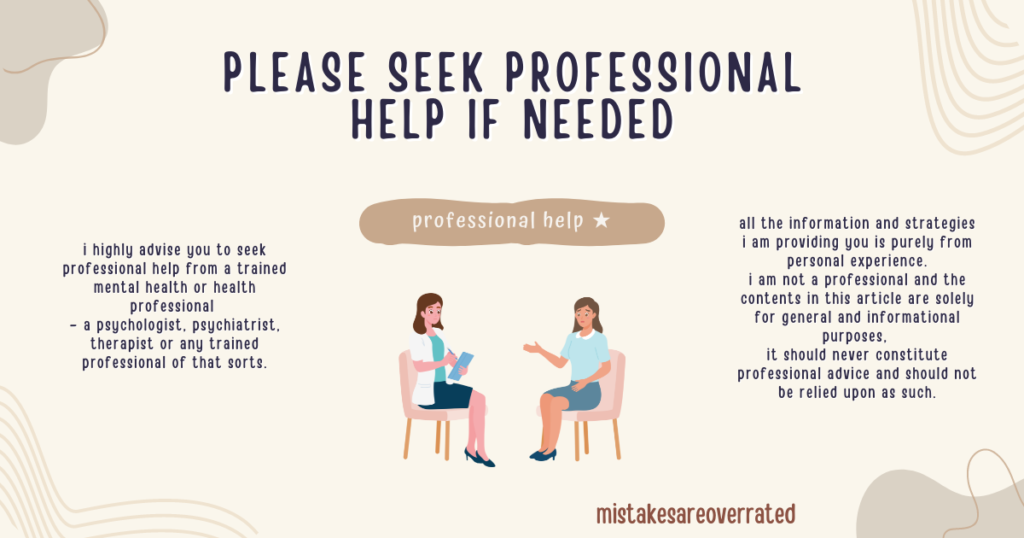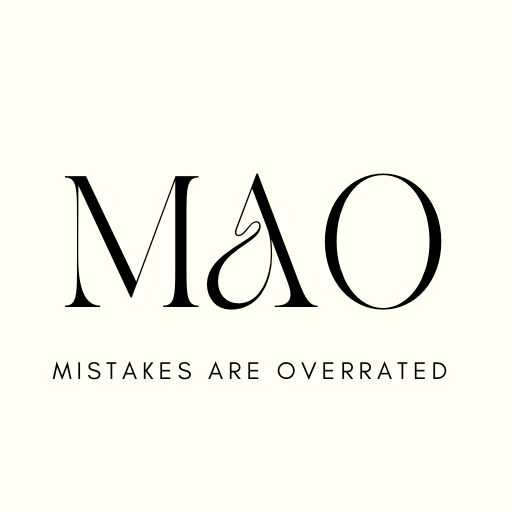you can be in the healthiest and most stable relationship you’ve been in, yet still have an anxious attachment.
luckily, you can overcome relationship anxiety with time and effort.
relationship anxiety is more common than you may have thought.
i am sharing with you everything i went through in order to heal my anxious attachment style.
i hope it can help you too, because you deserve to feel secure and loved.
today you will learn how to heal your relationship anxiety.
lets get into what i found helped me overcome my anxious thinking pattern.
10 signs of anxious attachment
- constantly overthinking
- struggle to feel secure and fully trust them
- constantly seeking reassurance
- reading deeply into their actions, text and words
- doubting your partners feelings towards you
- worrying they will break up with you (fear of abandonment)
- self sabotaging the relationship
- obsessive behaviours or being codependent
- overly protective
- going out of your way to try please them
heal anxious attachment
quick tips
you need to learn how to be aware of your emotions and be in control of them as this will help your anxious feelings.
luckily we can overcome relationship anxiety, but it takes time and effort.
learning how and when to say “no” is so beneficial when overcoming anxious attachment.
setting boundaries can help you learn to form a secure relationship attachment.
communication is so beneficial in creating a maintaining relationships.
you must learn to communicate your wants, needs and emotions effectively and efficiently as this builds trust.
build your self esteem. become a person you’re proud of and happy to be.
when you are content within yourself, it can help you with your peace of mind.
mindfulness. for me, journaling and walks are my favourite practise of mindfulness.
find what helps you be present in the moment and become comfortable with expressing yourself authentically.
please be advised that seeking help from a trained medial professional is highly recommended – psychologist, therapist, psychiatrist or any other health and mental health train professional. if your anxious attachment is taking a toll on your mental or physical wellbeing or you are struggling, reach out to someone.
okay, lets get into the steps to help you heal your anxious attachment whilst in a relationship.
acknowledgment
acknowledging your thoughts and catching yourself in the act means you are identifying the reoccurring problem.
this is the first step as being aware of your anxious attachment means you can begin to heal them.
you must have the desire to heal. you can’t just sit back and do nothing.
to heal requires action, so have a deep desire to heal your mindset.
want to grow as a person for yourself, and to become the best version of you for your partner.
when you notice you’re having anxious thoughts, stop your train of thought and remind yourself that it is not real.
your brain is just trailing off and making something up.
you may be 5 minutes into the thought before you go “oh nope i’m doing it again“, or you could notice the lead up before a thought.
it doesn’t matter the time that pasts before you catch yourself out, just being able to tell is the best start.
remind yourself over and over again that you are the one actually making up these thoughts.
this helps a lot, as sometimes our brains overthink and replay things over so much that we can find something wrong in almost anything.
we are able to create scenarios that seem so realistic because we’ve had so much time to think about it, and therefore we begin to believe them.
now don’t get me wrong, i am the biggest believer in intuition.
i am not saying don’t listen to anything your brain tells you, because i know intuition is a powerful ability we’re born with.
we cannot ignore when we get that certain feeling, however, we do need to recognise the difference between intuition/gut feeling verses overthinking and anxious thoughts.
action
learning requires action, i recommend you to dive deep into yourself and be as raw and open as possible.
it is so important to understand why you have an anxious attachment.
to figure out my why, i wrote down a 4 columned chart/table.
my questions were;

– please excuse the messy writing, i was really in my feelings.
this is what i personally did so don’t feel you need to have these exact questions, you can figure out your root causes any way you want.
childhood, anxiety, wants/needs and gives
my childhood column.
the feelings and situations i went through growing up that may impact my life as an adult.
my anxiety column.
the thoughts i had caught myself out thinking about and wrote them down, this way i was acknowledged them (the first step)
my wants/needs column.
the things that i felt i needed a little more in my relationship. it wasn’t that these were lacking, it was the things i established that were going to help me feel less anxious.
my gives column.
this column is a special one to remind you of how much your partner already gives you in your relationship and is a reminder that it is in your brain and its sometimes it’s not actually real.
now, you may notice that i have help underlined under each column.
after reading through my dot points on each heading, i thought of things i could do to help me with each point.
by doing this, i was able to identify what my brain resorts to – so i know what to pick up on when i begin to think about it.
for example: i know my brain would overthinking the most when i haven’t seen them in 3 days or i haven’t heard from them in 12 hours.

being able to pinpoint why your body creates these responses is crucial.
you are able to begin your healing journey and learn a lot about yourself.
i didn’t know the depths of my childhood trauma until i began this work on myself.
i learnt what certain areas in my childhood was absent/missing that created these holes.
i figured out that my brain overthinks because it’s not what i’m used to and i need to try to figure out what the catch is, or it creates stories of how i think they will respond, how they feel, and what they’re doing.
this was because i had uncertainty and inconsistency in my childhood (what i’d come home from school to, if they would show up to my school event ect)
this is why it is important for you to find out where your anxious attachment style stems from.
my anxiety has healed so incredibly much over the years, but everyday i am learning new things about my body and mind.
after doing these exercises and working on myself for months, i found that my roots were far deeper then i realised and i actually needed to start seeing a psychologist.
sometimes we need the help of a professional and that is completely fine, it does not mean you’re weak.

time
time is the best thing in this instance, as annoying as it is to hear.
but it isn’t just “time”, as time passes for everyone.
it is the time that passes where you are putting in the effort and work towards learning about yourself and healing what you learn.
unfortunately we don’t have a switch in our brain that we can flip when it’s convenient for us (although i have wished this at times).
you have to do the hard, nitty gritty work that most people don’t want to do, in order to heal and grow.
you are unravelling years and years of coping mechanisms your body created, (the healthy and unhealthy ones).
make sure you are patient and kind to yourself.
learning to swap your unhealthy habits/thoughts/mechanisms for more positive, healthy mechanisms takes time, patience and a lot of understanding.
your brain and body has dealt with these certain scenarios in a particular way for soooo many years that it feels normal to you now.
stay consistent and celebrate your small wins daily.
practise gratitude by saying or writing the things you are grateful for in your life and in your relationship.
having a journal of your achievements means you’re able to go back and read what you have been through.
sometimes we have no idea the extent we have grown until we actually look back and read or see our progress.
please understand that you won’t see results instantly or maybe even a few weeks or months down the line – but the main thing is, you acknowledged it and read about it today.
you’re already on your journey and one step ahead of who you were yesterday.
keep pushing yourself to learn, especially on the days where you feel you don’t want to.
if you want any help or advice on something, please reach out to me and ask.
don’t give trauma the power to control you, you deserve to live how you want. take control of your trauma.
life advice from one survivor to another
-MAO

Leave a Reply